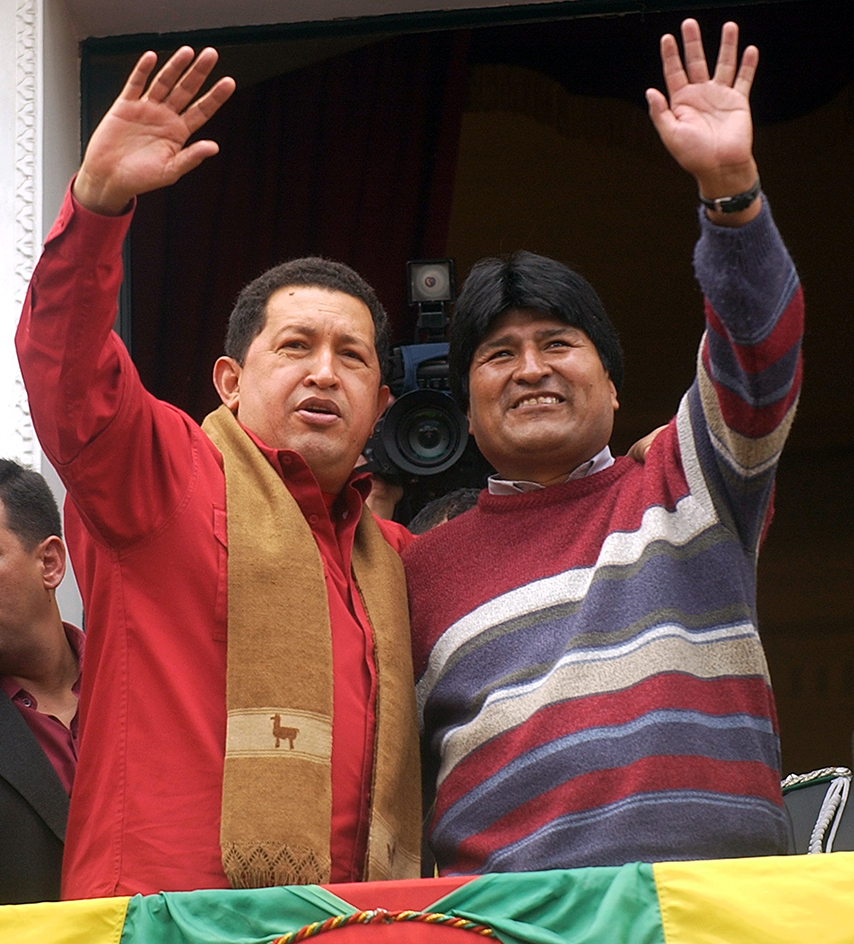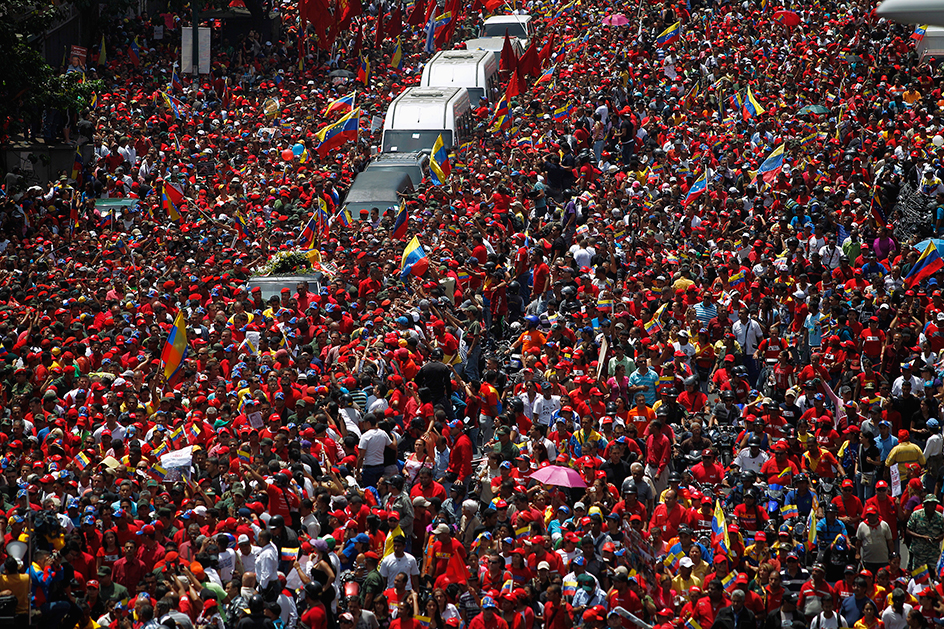Chávez Frías, Hugo, << CHAH vayz FREE ahs, YOO goh >> (1954-2013), was the president of Venezuela from 1999 to 2013. Chávez strove to create a kind of government that he called “21st century socialism.” His ideas were influenced strongly by the South American revolutionary Simón Bolívar. Chávez formed alliances with Cuban presidents Fidel and Raúl Castro and other leftist leaders. His government gave much aid to the poor, but critics claimed he was leading the country toward a kind of leftist dictatorship.

Hugo Rafael Chávez Frías was born on July 28, 1954, in Sabaneta, Venezuela, to a poor family. He graduated from the Venezuelan Military Academy in 1975 and became an army officer. In 1992, he led a failed coup (government take-over) against President Carlos Andrés Pérez. Chávez became a popular hero at a time of public discontent. He was elected president in 1998.
In a public referendum (direct vote by the people) in 1999, Chávez won approval for a new “Bolivarian Constitution” for Venezuela. He was reelected for another six years in 2000. Most Venezuelans supported political change. However, many wealthy and middle-class people grew alarmed as the government increasingly took over decision making for the petroleum industry and began shifting wealth to the poor. Chávez used oil profits to fund social services. His critics questioned whether his social programs could survive if oil prices should fall.
Chávez tried to strengthen the Organization of the Petroleum Exporting Countries (OPEC), an association of countries working to increase their oil revenue. His actions drew opposition from the managers of Venezuela’s state oil company, who wanted to increase oil production rather than cooperate with OPEC to limit oil exports.
Oil executives, labor leaders, the private media, and other groups united behind a coup that ousted Chávez in April 2002. However, loyal military officers quickly restored Chávez to power after huge protests by his supporters.
In 2002 and 2003, Chávez’s government survived a work stoppage that crippled the oil industry. In 2004, Chávez won a referendum to allow him to finish his term, though opponents claimed the vote was fraudulent.
Chávez was reelected president by a wide margin in December 2006. He then restored to government control some companies that had been sold to private businesses in the 1990’s. In 2007, Chávez refused to renew the license of a television network that had supported the 2002 coup against him. A referendum in early 2009 eliminated term limits for elected government officials, including the president.

Venezuelans reelected Chávez in 2012, but the opposition candidate won a substantial 45 percent of the vote. Owing to serious illness, Chávez did not attend his inauguration planned for January 2013. The Supreme Court ruled that Chávez could be sworn in later—a ruling that critics argued was unconstitutional. Chávez died on March 5, 2013.
